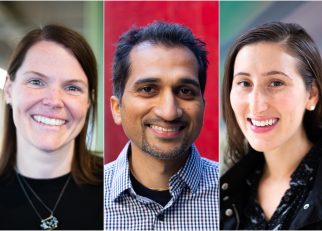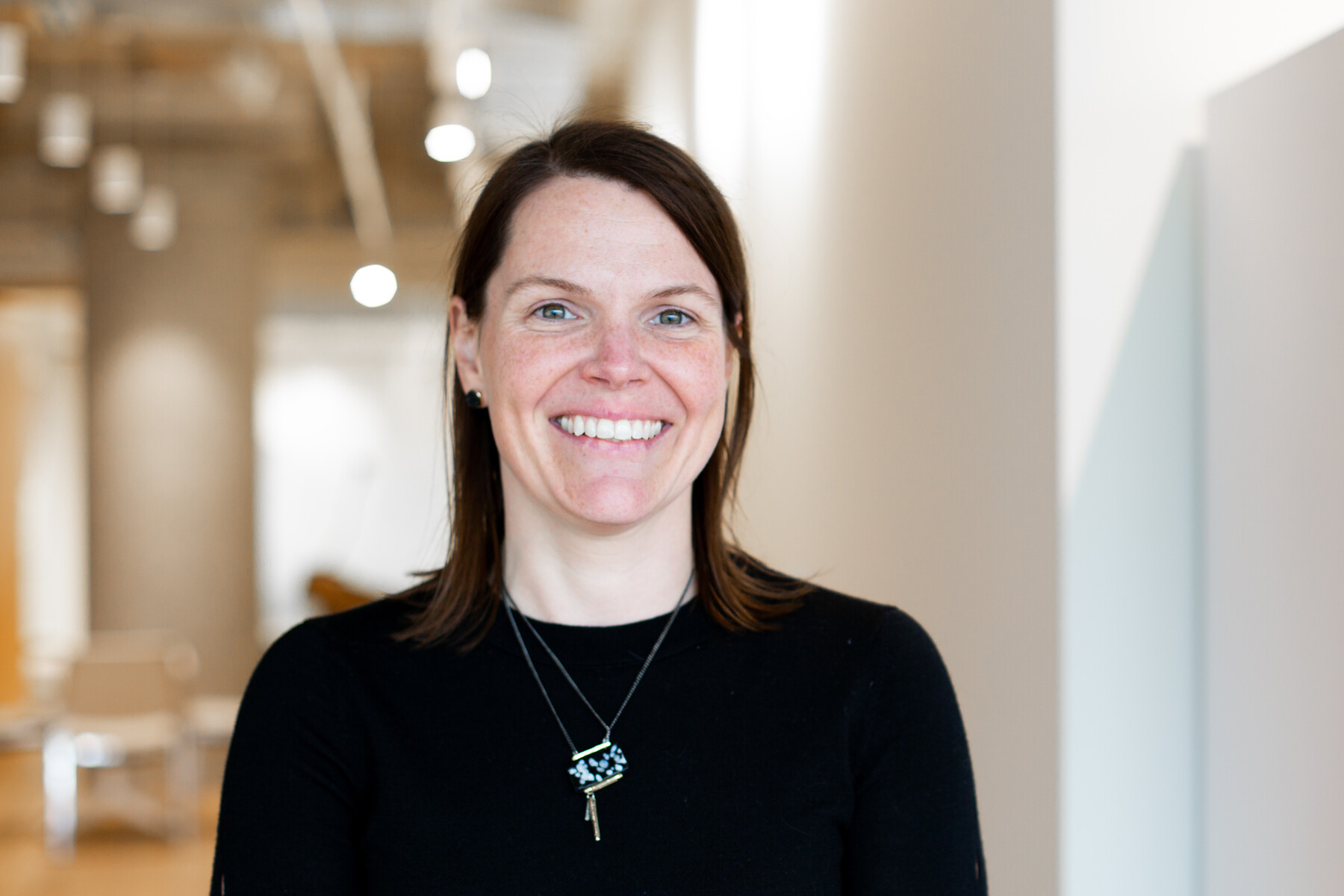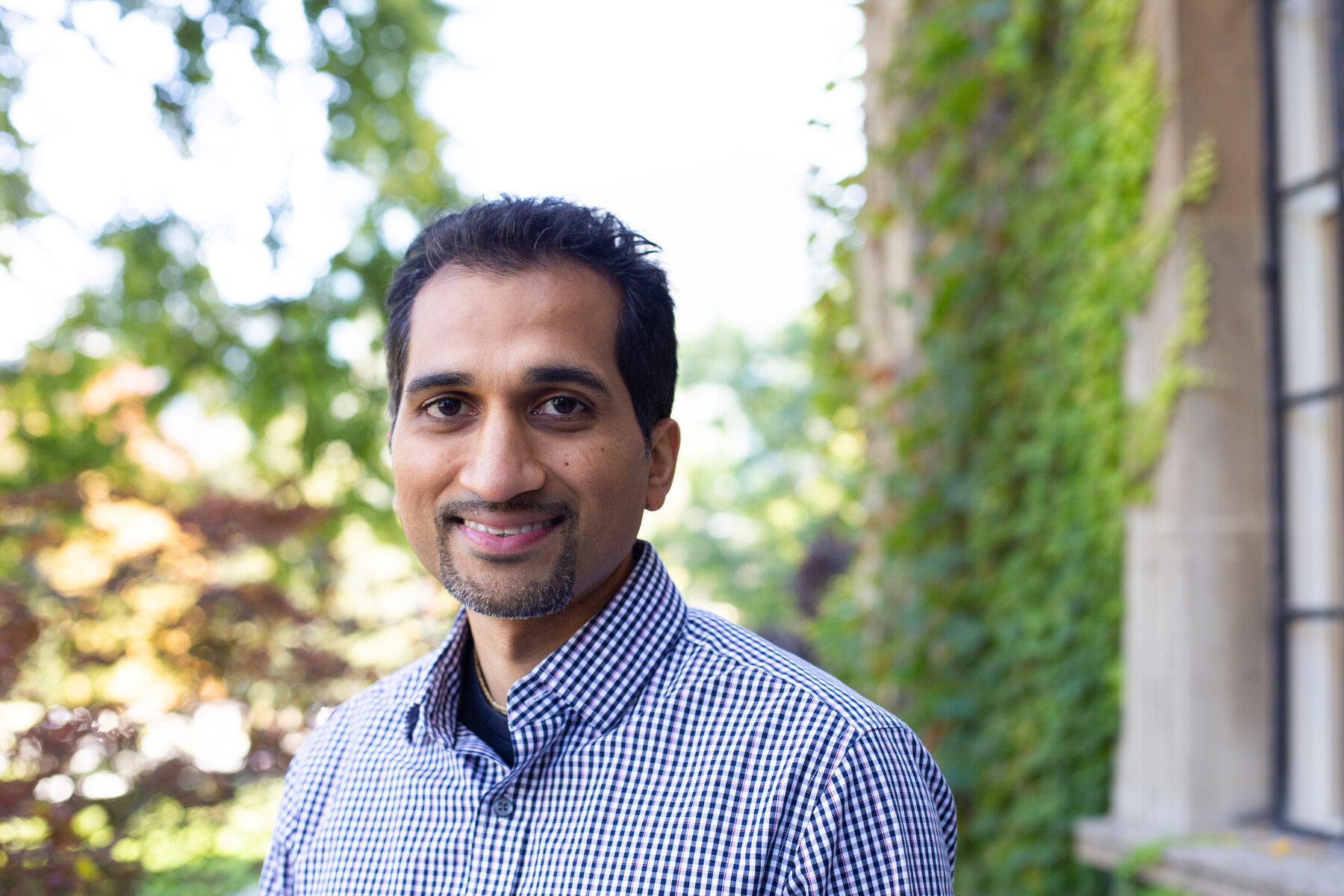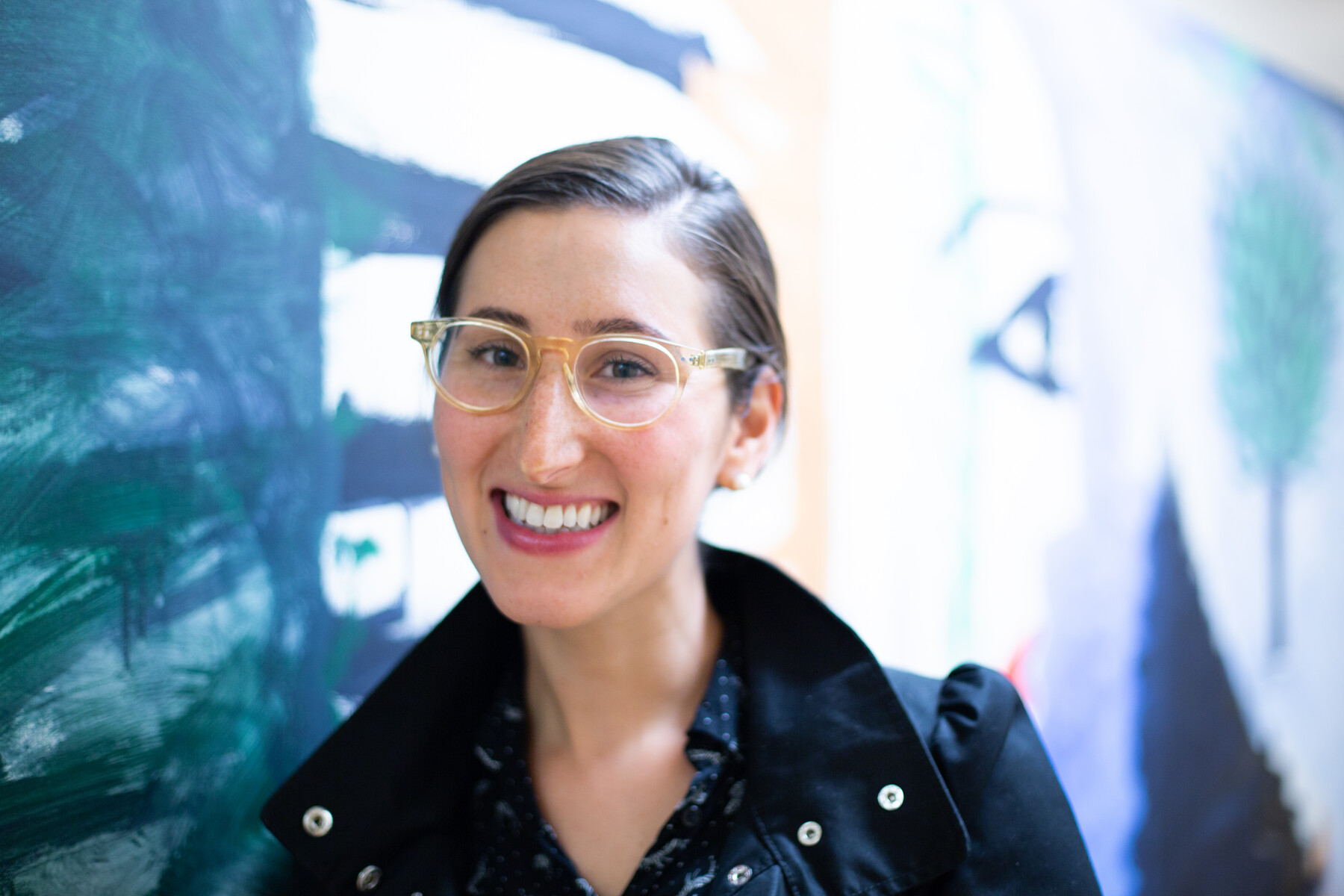Main Second Level Navigation
Building Resilience in Medical Students

In 2016, our MD Program launched its Resilience Curriculum to prepare first year medical students for the challenges of medical school and residency. The curriculum breaks down the stigma surrounding mental health issues and equips learners with the skills needed to persevere through challenges and adversity.
This year, the resilience curriculum workshops are primarily being facilitated by residents and physicians, who share their experiences and expertise with students moving into medical careers. Three of this year’s physician facilitators – Drs. Jennifer Croke, Rikin Patel and Rebecca Cherniak – talked about what lessons on resilience they wish they’d known when they were medical students, why it’s important to teach resilience and the highlights of facilitating these workshops.

Jennifer Croke
Physician, Radiation Oncology, Princess Margaret Cancer Centre
Assistant Professor, Department of Radiation Oncology, University of Toronto
Medical school can be an overwhelming time for many reasons: high-volumes of material to study and learn, caring for sick and dying patients, managing financial debt and trying to maintain work-life balance. By teaching resilience in medical school, we enable students to develop productive coping mechanisms when faced with difficult, stressful situations. Medical school is the beginning of a long journey of training and the earlier we teach these skills the better prepared students will be. This should translate into professional and personal success and satisfaction, and help prevent burnout.
When I was in medical training, topics like resilience, wellness and burnout were not addressed nor taught. I wish I was taught how to reflect and be self-aware about myself and my experiences. I wish I was taught skills for dealing with stressful situations and multi-tasking, as well as how to prioritize self-care.
For me, the best parts of facilitating resilience workshops have been the interactions with students. The medical students I have met are all very motivated, keen and energetic. I thoroughly enjoy these workshops. In turn, I have also learned a lot and it has forced me to reflect upon my day-in and day-out experiences and interactions. It has also highlighted the importance of being a good mentor and role model to our trainees.
My advice to current students and residents? We have all felt the way you do. The highs and the lows. But hang in there. Medical training is a long road, but a wonderful one. Be kind to yourself and take time for you. Make time for your friends and family.

Rikin Patel
Pediatrician, Markham Kids Clinic, Rouge Valley Health System and Timmins and District Hospital
Assistant Professor, Department of Pediatrics, University of Toronto
Time passes quicker by the day and the uncertainty in life is not going anywhere. I wish I took more time on a daily basis to appreciate and give thanks for all the great moments and opportunities I had in my life as a medical student. Skills that we teach students now – like cognitive reframing and having routines outside of medicine – would have really helped me.
I think of resilience not just as a career skill but a life skill. Being able to positively bounce back from challenges or disappointments impacts every facet of our life. Resilience is an important skill to have in medical school because as doctors, we often have an overestimation of our abilities and what we think we’re supposed to be able to do. Learning and teaching resilience not only grounds us by developing humility as future leaders in health care, but it also helps us by creating boundaries and acknowledging our limitations. Last but not least – it’s a much needed and refreshing dose of reality that is beneficial for learners, doctors and the patients we serve.
I really enjoy connecting with the medical students and sharing my experiences, listening to them and trying to support them. They give me energy and enthusiasm. Connecting with students on this level has been a big priority for me after I experienced burnout while doing my fellowship over five years ago. Aside from helping students, facilitating these workshops forces me to work on myself, too.
Being a physician is a privilege and can be extremely rewarding. However, it can also be very demanding and you need boundaries to make sure you’re not burning out. If you don’t take care of your own well-being, no one will. You have to know when you need to ask for help. Advocate for yourselves and your peers. It takes a village to make a resilient and successful physician.

Rebecca Cherniak
Resident Physician, Obstetrics and Gynecology, University of Toronto
There seems to be an expectation that physicians are unflappable and invincible. When I was a medical student, I viewed my residents and staff as perfect beings, never needing help. When I was a first-year resident in Obstetrics, we unfortunately had a patient with a devastating outcome involving a neonatal death. The staff obstetrician gathered our team in a private room and she cried and explained to us how she was feeling. It was so helpful to see this human reaction from my staff and to learn from her example that it is okay not to be okay, and the importance of asking others for support.
In every field of medicine, physicians can face extremely complicated situations that can affect us professionally and personally. The introduction of resilience teaching in medical school helps to build a foundation for the challenges we inevitably face as clinical clerks, and later as residents. Specifically, learning about coping strategies and concepts of cognitive re-framing teaches trainees how to manage these future challenges, as well as those transitions as they adjust to medical school and move through the years of training. Ultimately, training resilient physicians will help to create a more resilient and supportive medical community.
This is the third year that I have been helping to facilitate resilience workshops for UofTMed students. I learn so much from the students and from their perspectives. As a resident who teaches medical students at the hospital, the workshops help to remind me of what students may be thinking and feeling, allowing me to become a stronger ally for my students when they join the medical team.
One of my favourite moments during these workshops is when the barriers are broken; students share the challenges they have struggled with and they discover that their peers have often felt the same way. After the workshops end, I often see students continuing the conversation with a peer who they were not well-acquainted with at the beginning of the session.
One piece of advice I received from a special mentor was to look at the world of medicine as a big fabulous party. This party has an intense, loud, intoxicating dance floor where you can get totally lost in the music. On the other end of the party, there is a gorgeous outdoor balcony where you can relax and watch the people on the dance floor. Staying resilient in medicine means finding a balance – making it to the dance floor for your favourite songs, but also finding some time to catch your breath on the balcony and take stock of where you're at.
